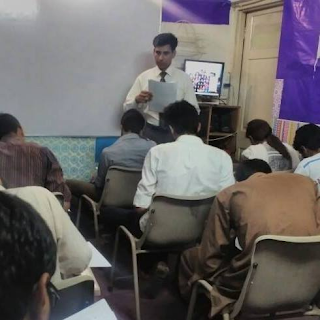Charting a New Course in ELT: Supporting Teachers Toward Excellence
0
September 04, 2023
Charting a New Course in ELT: Supporting Teachers Toward Excellence
Without the assistance of clear rules and organized mentorship programs, educators in the field of English language teaching (ELT) frequently find themselves navigating the challenging seas of language education. Teachers who go on this solitary road face not only great obstacles but also a cloud over their personal and professional development. As a result, teachers use a variety of classroom management techniques, frequently passing up the chance to improve their teaching abilities and increase their knowledge.
The lack of specific guidelines is a major problem in the ELT context. Without these compass points, educators struggle to come up with efficient instructional strategies. It becomes challenging to find the ideal balance between teacher-led instruction, student-centered activities, and language practice. This ambiguity causes classroom irregularities, which hinder students' growth and language learning. It is crucial to have clear instructions that provide teachers with a solid framework for ensuring that pupils have a harmonious and consistent learning experience.
Furthermore, the lack of well-organized mentoring programs makes the difficulties faced by ELT teachers much worse. A mentorship program provides a lifeline by enabling experienced educators to assist less-experienced colleagues with invaluable advice, unwavering support, and constructive criticism. Mentorship promotes a sense of community within the teaching profession in addition to skill development. Teachers may struggle with loneliness and insecurity in the absence of such formal mentorship programs, losing out on priceless chances to advance. A mentor acts as a lighthouse, illuminating the road and providing ideas, suggestions, and new viewpoints that help teachers improve their teaching practices, classroom management approaches, and student engagement strategies.
Teachers frequently develop a variety of classroom management tactics when they are left to their own devices without clear boundaries and guidance. Despite having the greatest of intentions, these methods may vary greatly and not necessarily follow the most effective methods for teaching foreign languages. Students become confused as a result of the inconsistency as they face various teaching philosophies and methodologies in their language classes. Teachers could also unintentionally ignore important components of efficient language instruction, such as providing timely and constructive feedback, incorporating communicative activities, or utilizing technology for improved learning. Students unintentionally lose out on a well-rounded language learning experience as a result, which hinders their development and overall language ability.
Teachers face enormous problems, but the lack of clear guidelines and well-organized mentoring programs also hinders their professional development. Maintaining teachers' awareness of the most recent materials, strategies, and findings in language education requires ongoing professional development. It acts as a starting point for innovative approaches, teamwork among coworkers, and reflective activities. Teachers, however, can find it difficult to recognize and take advantage of worthwhile professional development opportunities without the right support and mentoring. This limited professional development hinders their ability to adapt to changing educational environments and offers pupils the best learning opportunities.
In conclusion, the lack of clear guidelines and organized mentoring programs in the ELT field presents significant difficulties for teachers. Their ability to design efficient teaching methods, take part in worthwhile professional development, and give pupils a consistent learning experience is hampered by this scarcity. The adoption of precise criteria for language teaching practices must be given top priority by educational institutions and policymakers in order to address this urgent issue. They should also make investments in well-designed mentorship programs to give instructors the support and direction they require. By doing this, we may steer ELT in a new direction while encouraging good teaching techniques, supporting professional development, and ultimately enhancing students' language learning experiences.
Riaz Laghari is a passionate educator and linguist who is well aware of the ability of education to change a person's life. He works hard as a dedicated English instructor to pique his students' curiosity and promote a love of studying. Riaz offers his thoughts and perceptions on language, ELT, and the nuances of linguistic engagement at http://riazlaghari.blogspot.com.
Tags




